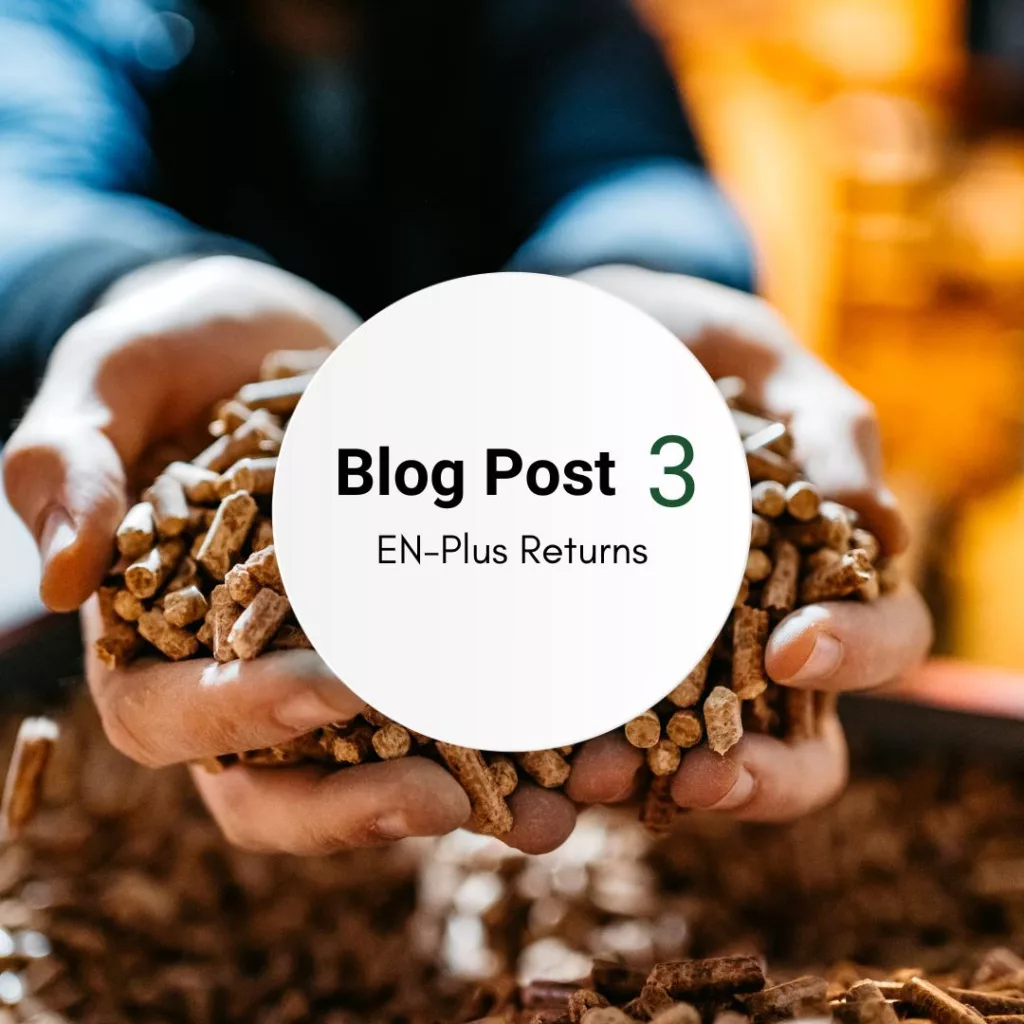Learn about the reintroduction of EN Plus requirements for UK wood pellets and how it impacts the Biomass Suppliers List (BSL) and Renewable Heat Incentive (RHI). This blog post explains how EN Plus certification ensures wood pellet quality and sustainability, strengthens BSL accreditation, and assures RHI participants of using top-quality renewable heating solutions.
EN Plus requirements: Implications for BSL and RHI

In a significant move towards bolstering the quality and sustainability of renewable energy sources, the UK is set to reintroduce En-Plus requirements for wood pellets in November. This development holds far-reaching implications for the Biomass Suppliers List (BSL) accreditation and the government’s Renewable Heat Incentive (RHI) scheme. In this blog post, we will explore how the resurgence of En-Plus accreditation for UK wood pellets will impact both BSL and RHI initiatives. All of the wood pellets that we produce are En-Plus A1 certified and BSL accredited.
EN Plus Reintroduction: A Quality Paradigm
En-Plus, a certification scheme established by the European Biomass Association, has long been synonymous with quality assurance in the wood pellet industry. It ensures that wood pellets adhere to rigorous standards encompassing production, distribution, and sustainability practices. With the imminent return of En-Plus requirements in the UK, the nation is reinforcing its commitment to advancing the use of renewable energy sources.
BSL Accreditation and ENplus: Mutual Goals
The Biomass Suppliers List (BSL) accreditation is the UK’s answer to promoting the responsible sourcing of biomass fuels, including wood pellets. En-Plus and BSL share a common goal: to ensure the sustainability and integrity of the biomass supply chain. The reintroduction of En-Plus accreditation aligns seamlessly with BSL’s objectives by contributing to the verifiable sustainability of wood pellets, which is also a key objective for SDL.
Impact on BSL Accreditation
The reintroduction of En-Plus accreditation will likely have a positive ripple effect on BSL. As SDL have always, and will always uphold the En-Plus A1 standard despite government regulation you can be sure SDL Pellets meet BSL’s sustainability criteria. The En-Plus certification serves as a testament to responsible sourcing, reducing the administrative burden for those seeking BSL accreditation. As a result, BSL will be better equipped to facilitate the procurement of sustainable biomass fuels.
En-Plus and RHI: Synergy in Sustainability
The Renewable Heat Incentive (RHI) scheme, a cornerstone of the UK’s clean energy strategy, rewards individuals and businesses for adopting renewable heating technologies. The reintroduction of En-Plus requirements further amplifies the relationship between En-Plus and RHI.
Impact on RHI Participation
En-Plus accreditation holds an important place in the RHI landscape. It assures participants that wood pellets meet stringent quality standards, ensuring optimal performance in biomass heating systems. As EnPlus-certified wood pellets become a requirement, RHI participants can have greater confidence in the sustainability and effectiveness of their chosen renewable heating solutions. Again, being En-Plus and BSL registered you can remain confident that SDL pellets are meeting all accreditations and supplying top-quality pellets.
Conclusion: EN Plus Requirements Towards a Greener Future
The reintegration of ENplus requirements for UK wood pellets in November symbolises a renewed commitment to elevating the quality and sustainability of renewable energy sources. As En-Plus strengthens the link between wood pellet quality and responsible sourcing, its harmonious relationship with BSL and RHI initiatives comes to the forefront. This triad of certifications and incentives serves as a formidable force driving the UK’s journey towards a greener, cleaner, and more sustainable energy future, something that SDL Pellets are proud to be a part of.
If you’re interested in finding out more about our products and industry news, check out our blog page here.

